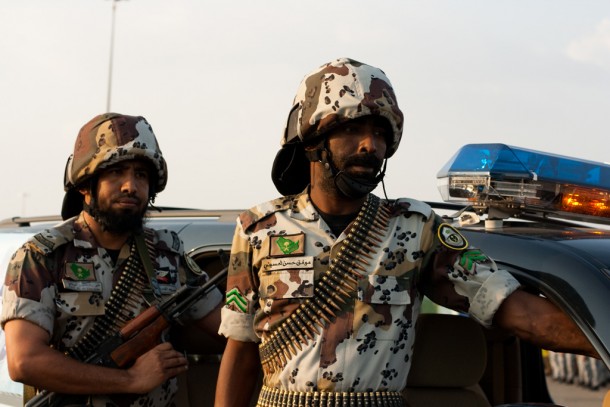Late last night, representatives of Saudi Arabia and Egypt were reported to have signed an agreement aimed at strengthening both military and economic ties in the face of continued conflict across the region.
The pact, reached between Egypt’s President Abdel Fatah el-Sisi and Saudi Defence Minister, Prince Mohamed Bin Salman, places emphasis on deepening regional cooperation and further investment into energy and transportation sectors. Part of the agreement between the states includes talks of the eventual creation of a regional Arab military force.
“The need for a unified Arab force is growing and becoming more pressing every day,” the president said.
Egypt recently participated in the ongoing Saudi campaign against Iran-backed Houthi rebels in conflict-riddled Yemen, offering air and naval forces to the military coalition. The controversial intervention has been viewed by many as being increasingly detrimental to the human rights situation in Yemen.
In a report earlier this month, Amnesty International researchers concluded that the strikes in Yemen were failing to abide by humanitarian law by not doing more to prevent civilian casualties. United Nations observers put the toll at over 1,500 civilians killed since March, including hundreds of children.
An attack on Sanaa, Yemen’s capital, on 20 July highlighted the growing fears that more civilians will be killed as Saudi and cooperating forces continue to target rebels.
“It just shows what is the trend now of the air strikes from the coalition,” Hassan Boucenine of the Geneva-based Doctors Without Borders said in an interview with The Guardian. “Now, it’s a house, it’s a market, it’s anything.”
Despite growing evidence of human rights violations, it is likely in Cairo’s best interests to continue to ride the current wave of warming relations between Egypt and Saudi Arabia and to stay with the military effort. Since the ousting of former President Mohamed Morsi, Saudi Arabia and the other Gulf states have given billions of dollars to bolster Egypt’s struggling economy, following years of political turmoil.
Besides economic assistance, Egypt, like many in the region, has been desperately seeking a way to combat the growing presence and violence by Islamic State insurgents. In February of this year, IS claimed credit for the beheading in Libya of 21 Coptic Christians – all but one of them Egyptian.

